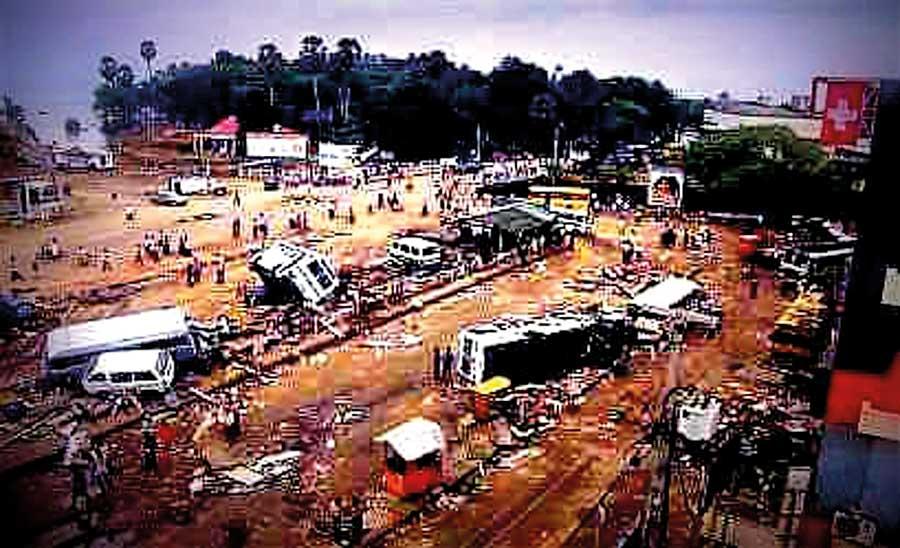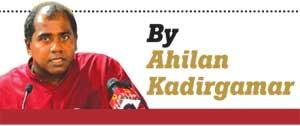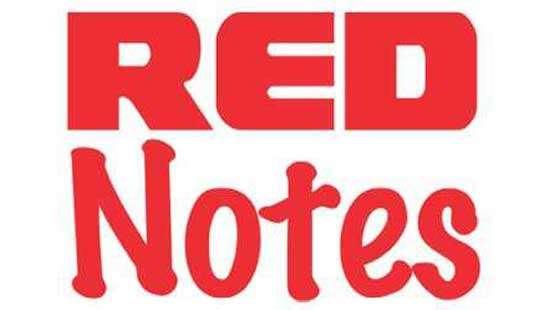17 May 2021 - {{hitsCtrl.values.hits}}

2004 Tsunami still continues to terrify people
Even as we remember the cataclysmic end of the war, with its immense destruction and loss of life in May 2009, Sri Lanka is on the verge of drowning under the pandemic. What we remember is what we know most intimately from the past. And I remember my conversations with my late father, Silan Kadirgamar.
Sri Lanka is on the verge of drowning under the pandemic. What we remember is what we know most intimately from the past. And I remember my conversations with my late father, Silan Kadirgamar.
Silan was the child of the Jaffna Youth Congress, where his father and their contemporaries initiated a movement against colonialism, brought leaders from all over the country to Jaffna and dreamt of freedom. This movement – its history that Silan wrote decades later – called for reviving the vernacular languages, both Tamil and Sinhala and the related indigenous cultures. It challenged untouchability and caste oppression as it called for equal seating in schools and common dining, and invited Mahatma Gandhi to Jaffna.
"In the face of a social crisis where suffering and death are on the verge of exponentially rising with the pandemic, and where an unfolding economic depression is strangling the day to day lives of the deprived, are we going to fail again?"
Silan born a few years after Gandhi’s visit and just before the formation of the Lanka Sama Samaja Party, of which he eventually became a sympathiser, experienced the World War II during his childhood in Malaysia. Sri Lanka gained independence during his formative years, and he grew up with the idealism of a postcolonial future influenced by visions of Gandhi and Nehru, and with ideals of freedom and equality. Silan and many others like him were fortunate to enter the University of Ceylon, where they formed friendships across communities, played table tennis and dreamt of socialism, and enjoyed the privilege of free education with the best of facilities in Peradeniya.
That was the past that my father often recounted to me during my childhood. And in my youth, I began to accuse him. What did you and your generation do, with all that experience and privilege, the future of the nation before you, and freedom after centuries of colonial rule? Your generation failedto redress injustice, after the people who built this country from the estates were disenfranchised. You did not stop the monsters of nationalism taking the country on the path of hell throughwar. My father would listen patiently to my accusations, and then respond, let us see what your generation does.
Suffering and responsibility
We saw the war escalate, despite the devastation of the tsunami in 2004, and culminating in the horror of an end that was celebrated as a victory. We saw the decade after the war without bringing the communities together as militarisation continued, and worse, isolating and attacking the Muslim community. We know the crass opportunism, the power hungry manipulation and the brutality of our rulers, and we knew the suicidal politics of the LTTE, but in the end we failed again and again to arrest the tide of polarisation and destruction.
"Despite the devastation of the tsunami in 2004, and culminating in the horror of an end that was celebrated as a victory. We saw the decade after the war without bringing the communities together as militarisation continued, and worse, isolating and attacking the Muslim community"
To remember the past, means taking responsibility for the past. And such responsibility requires self-criticism. Yet we are deafened by the clamour of “war heroes” and “war victims”, with little space for reflection. Do I accuse myself and my generation, like I once accused my father’s generation? In the face of a social crisis where suffering and death are on the verge of exponentially rising with the pandemic, and where an unfolding economic depression is strangling the day to day lives of the deprived, are we going to fail again?
Freedom and equality
 Some ridiculous quarters are still talking about prosperity and splendour, when we should be trembling at the tragedy before us. This is not only a sign of arrogance, but the shutting down of democracy. Amartya Sen’s great insight was that democracies are less likely to be ravaged by famines, because people conscious of their entitlements will be a check on the state to ensure food is distributed. No wonder with the authoritarian consolidation of the Modi regime, India is being ravaged by the pandemic. In Sri Lanka, we may still have one of the best free healthcare systems, but authoritarian militarisation may bury us with the pandemic.
Some ridiculous quarters are still talking about prosperity and splendour, when we should be trembling at the tragedy before us. This is not only a sign of arrogance, but the shutting down of democracy. Amartya Sen’s great insight was that democracies are less likely to be ravaged by famines, because people conscious of their entitlements will be a check on the state to ensure food is distributed. No wonder with the authoritarian consolidation of the Modi regime, India is being ravaged by the pandemic. In Sri Lanka, we may still have one of the best free healthcare systems, but authoritarian militarisation may bury us with the pandemic.
In these difficult times, I like my father few decades back want to have faith in the next generation. Hope in the laughter and energies of my students and younger activists, though I know their road is going to be troubled and hard. What could not be achieved with Independence – freedom and equality – should perhaps again be the vision.
"In our day, we have reduced education to “employability”, even though there are no new jobs, and those with jobs are losing them. The next generation may not have jobs, and perhaps not even rice and milk, unless we take the immense steps of reconstructing our state and society"
Some of our visionary leaders, even before Independence, recognised the importance of free education for a democracy. But in our day, we have reduced education to “employability”, even though there are no new jobs, and those with jobs are losing them. The next generation may not have jobs, and perhaps not even rice and milk, unless we take the immense steps of reconstructing our state and society.
As we awake again into a troubled world, remembering the war, the pain of those who have lost their loved ones not to the passing of time, but to the brutality of society, we must take responsibility. At least, during this moment of great global tragedy, will we have the foresight not to celebrate war, nor seek cheap politics out of suffering, but to remember and reflect on our past and meditate on our future? That might be a way of preparing the departure, of the next generation on whom we must place our hope, so they can embark on the path of democracy, with visions of freedom and equality.
29 Nov 2024 10 minute ago
29 Nov 2024 2 hours ago
29 Nov 2024 3 hours ago
29 Nov 2024 3 hours ago
29 Nov 2024 4 hours ago